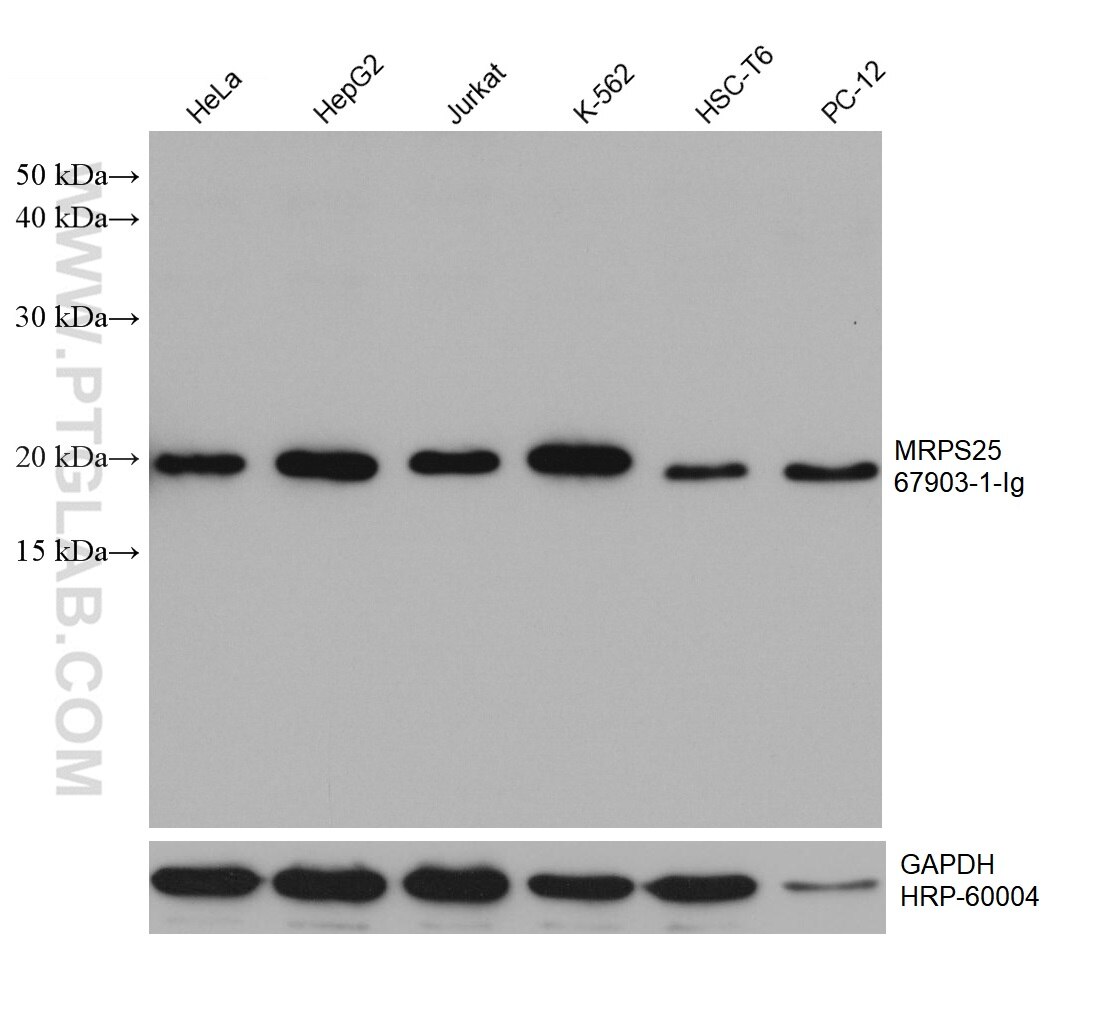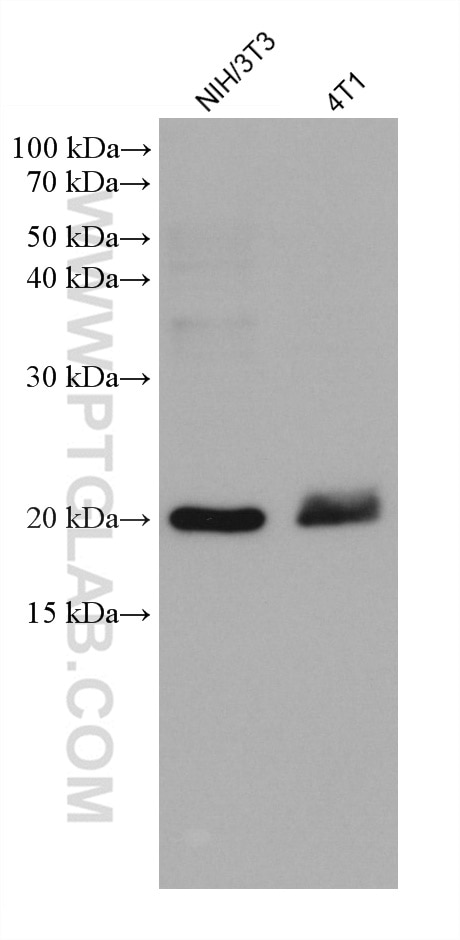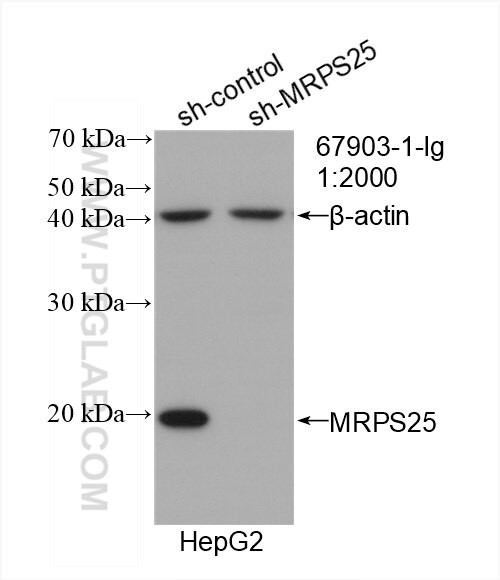- Featured Product
- KD/KO Validated
MRPS25 Monoclonal antibody
MRPS25 Monoclonal Antibody for WB, ELISA
Host / Isotype
Mouse / IgG2b
Reactivity
Human, mouse, rat
Applications
WB, ELISA
Conjugate
Unconjugated
CloneNo.
3B10B6
Cat no : 67903-1-Ig
Synonyms
Validation Data Gallery
Tested Applications
| Positive WB detected in | HeLa cells, NIH/3T3 cells, HepG2 cells, Jurkat cells, K-562 cells, HSC-T6 cells, PC-12 cells, 4T1 cells |
Recommended dilution
| Application | Dilution |
|---|---|
| Western Blot (WB) | WB : 1:2000-1:10000 |
| It is recommended that this reagent should be titrated in each testing system to obtain optimal results. | |
| Sample-dependent, Check data in validation data gallery. | |
Product Information
67903-1-Ig targets MRPS25 in WB, ELISA applications and shows reactivity with Human, mouse, rat samples.
| Tested Reactivity | Human, mouse, rat |
| Host / Isotype | Mouse / IgG2b |
| Class | Monoclonal |
| Type | Antibody |
| Immunogen | MRPS25 fusion protein Ag7846 |
| Full Name | mitochondrial ribosomal protein S25 |
| Calculated Molecular Weight | 20 kDa |
| Observed Molecular Weight | 20 kDa |
| GenBank Accession Number | BC003590 |
| Gene Symbol | MRPS25 |
| Gene ID (NCBI) | 64432 |
| RRID | AB_2918659 |
| Conjugate | Unconjugated |
| Form | Liquid |
| Purification Method | Protein A purification |
| Storage Buffer | PBS with 0.02% sodium azide and 50% glycerol pH 7.3. |
| Storage Conditions | Store at -20°C. Stable for one year after shipment. Aliquoting is unnecessary for -20oC storage. 20ul sizes contain 0.1% BSA. |
Background Information
Mitochondrial ribosomal protein S25 (MRPS25) belongs to the ribosomal protein S25/L51 family. It is a component of the mitochondrial ribosome small subunit (28S). The variant segregated with the disease and substitutes a highly conserved proline residue with leucine (p.P72L) that, based on the high-resolution structure of the 28S ribosome, is predicted to compromise inter-protein contacts and destabilize the small subunit.
Protocols
| Product Specific Protocols | |
|---|---|
| WB protocol for MRPS25 antibody 67903-1-Ig | Download protocol |
| Standard Protocols | |
|---|---|
| Click here to view our Standard Protocols |




